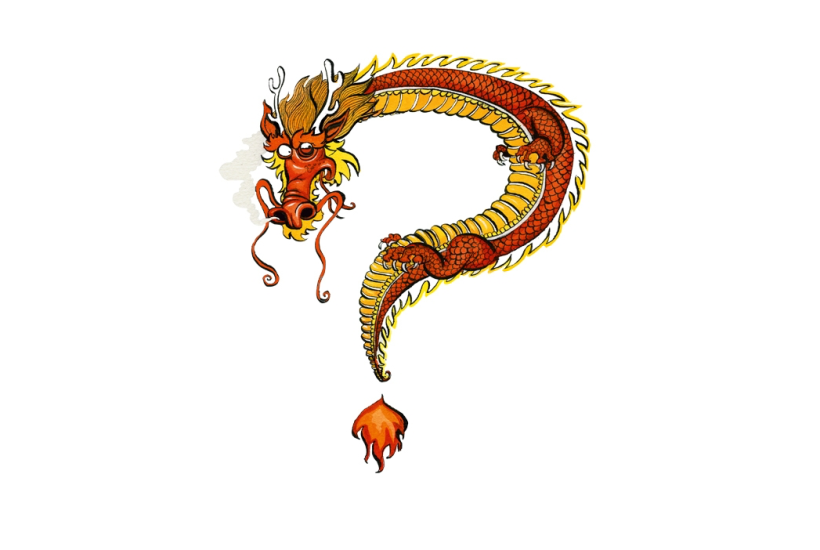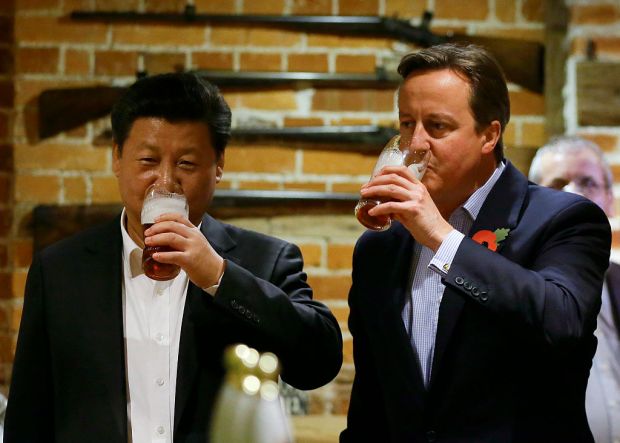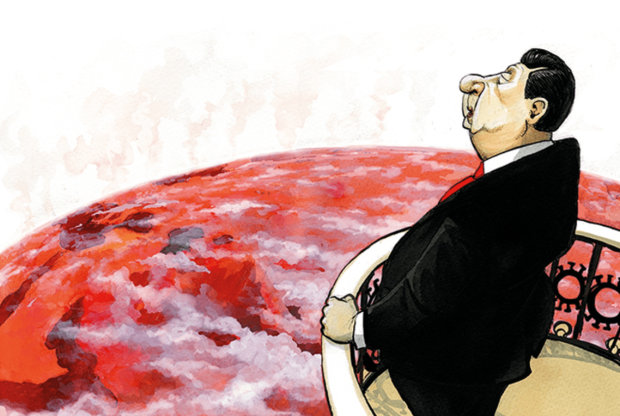There can have been no more avid viewers of the CCTV footage of Matt Hancock’s snog and grope than China’s cyber spies, chuckling in some dark room in Beijing and asking each other, how can it have been so easy for somebody to obtain? MI5 seems to be asking itself the same question. Three days after the photographs and video were first published, it appears that nobody knows for sure how it was done. Did it come from somebody with access to the feed who downloaded it or filmed it on the screen with a mobile phone? Or was the camera hacked, because the dirty little secret of these devices is that they are not at all secure?
Equally as worrying is Hancock’s claim that he didn’t even know there was a camera in his office. One report suggests it was part of the smoke detector and appears to have been monitoring the door. Who installed it? Were there others in the office and were they recording sound? How many other ministerial offices are being monitored in this way? These are fundamental national security questions. CCTV cameras have proliferated in Britain, and government organisations – local and central – have been among the most enthusiastic buyers.
The Hancock incident is glaring testament to how out of control this surveillance fetish has become – and how systems supposedly designed to improve security can seriously undermine it.
Then there is the thorny question: what make was the camera? There have been reports that the cameras in the Department for Health were made by the Chinese company Hikvision. Its cameras are in widespread use across Britain, and public authorities are particularly avid buyers. An estimated 1.3 million Hikvision cameras are being used by airports, councils, NHS trusts and government departments. More than half of London councils own Chinese surveillance cameras. Did Hikvision equipment capture the Health Secretary’s embrace? It is more than an academic question, since UK intelligence agencies are reportedly pushing for curbs on ‘smart cities’ technology supplied by China which they fear could be used by Beijing for espionage, surveillance or the collection of sensitive data.
Hikvision is a leader in cameras with artificial intelligence. This includes facial recognition, freshly calibrated to cope with Covid-19 masks, and gait recognition, identifying the unique way an individual walks. There are even cameras able to read emotions. Think Tom Cruise and Minority Report, identifying crimes before they take place. You didn’t need an emotion-reading camera to see that Matt was pleased to see Gina, and although the camera in his office was probably of the dumber variety, how do we know for sure? The process by which they are bought and installed is opaque to say the least.
Hikvision has close links to the Chinese Communist Party. It is an enabler of Xi Jinping’s dystopian surveillance state and has been blacklisted by the US government for facilitating repression in Xinjiang. ‘Smart cities’ (referred to as ‘safe cities’ in China) is an umbrella term for the surveillance cameras, sensors and other ‘intelligent’ systems that will supposedly keep our future cities ticking over, while collecting a chilling amount of data in the process. Hikvision, Alibaba and Huawei are all key suppliers.
While ministers seem clueless about the proliferation of this tech in their own offices, they have been stressing the need to curb access by China’s big tech companies to the most sensitive parts of the British economy. But even here the government’s resolve and understanding is in doubt, with new foreign investment rules being watered down. The threshold above which an overseas stake must be examined was raised from 15 per cent to 25 per cent, sharply reducing the number of deals facing scrutiny.
The amendment to the National Security and Investment Bill was presented by business secretary Kwasi Kwarteng as necessary to show Britain is still ‘open for business’. It follows intense lobbying by the Confederation of British Industry, which fears the new rules will deprive industry of investment just as it is emerging battered and bruised from the pandemic.
Look no further than the 2008 financial crash to see where this can lead. In the wake of that meltdown, desperate and wobbly western companies turned to China for salvation. Beijing obliged with cynical precision. Opaque state-backed entities snapped up tech and infrastructure firms across Europe, driven by the Chinese Communist Party’s strategic objectives as much as by commercial sense. For the grateful recipients, due diligence frequently consisted of little more than counting the number of zeros on the cheque.
The government says it wants the new rules to be ‘proportionate’ and insists it maintains a great deal of discretion in the way the powers are exercised — though that can cut both ways in times of economic stress. It also points to its resolve in excluding Huawei from Britain’s next generation 5G networks. That is true — as far as it goes. The Chinese telecoms giant remains deeply embedded in existing set-ups, and has rapidly expanded research collaboration in the UK, working with 35 institutes and universities — including funding advanced facilities at Cambridge, Edinburgh, Surrey and Imperial College London. It was allowed to buy a stake in Oxford Sciences Innovation, a company that commercialises research from Oxford University. The stake is less than 1 per cent, a toehold — but is that the sort of toe Britain wants in the world’s largest fund dedicated to academic spin-offs?
Britain has been a popular and welcoming destination for Chinese investment, estimated to be worth more than £50 billion between 2010 and last year. Until now there has been very little in the way of regulation or scrutiny. Chinese companies have invested heavily in property, including the Leadenhall Building in the City, otherwise known as the ‘Cheesegrater’. Chinese investors own Pizza Express, Thomas Cook, Wolves and Southampton football clubs and a company that builds black cabs. A Chinese sovereign wealth fund holds minority stakes in Thames Water and Heathrow airport, while China’s National Offshore Oil Corporation is responsible for around a quarter of UK North Sea oil production. Chinese entities have also bought stakes in the National Grid’s gas distribution arm, and Global Switch, one the world’s largest cloud data providers.
But it is Chinese tech companies that present the most worrying challenge. Despite Huawei being excluded from 5G, other businesses are being welcomed into sensitive corners of the British economy with little scrutiny,
Nuctech, which has been called ‘the Huawei of airport security’, supplies scanners to British airports and seaports. It is part-owned by the China National Nuclear Corporation, a leading defence conglomerate with deep roots in the country’s military as well as civil nuclear programmes.
The British government has held discussions with ByteDance, the Chinese owner of video-sharing platform TikTok, about setting up its international headquarters in London, in spite of concerns over its close links with the CCP and the security of data, for which it has a voracious appetite. In America, TikTok agreed to pay $92 million to settle a class-action lawsuit alleging its app illegally tracked users and shared biometric data from photos and videos without their consent. The company denies any wrongdoing. The BBC has signed co-production deals with TenCent, a Chinese tech giant that owns WeChat — the ‘app for everything’ and a key component for disinformation and social control in China and increasingly beyond.
TikTok and WeChat are vast data-gathering machines — and data has been described as ‘the new oil’ of the world economy, central to the global AI race now gathering pace. It is the raw material to train the hungry algorithms of AI. China has no restraint on its collection at home, and is increasingly looking abroad to harvest more. Beijing talks a lot about building the world’s ‘digital infrastructure’ and ‘smart cities’ (both part of the package on offer under its Belt and Road Initiative). In the Chinese context these are inextricably linked with surveillance, control and the hoovering of data.
Many Chinese tech companies protest that they are private and commercial, but private companies do not exist in any meaningful sense in Xi’s China. The CCP has extended and enhanced its power within every company, overseeing key decisions. National security, intelligence and cyber laws require all companies to cooperate on demand. A civil-military partnership, the transfer of know-how to the military, is enshrined in China’s constitution. Chinese tech companies are partners in the surveillance state and are its international standard bearers. Many are heavily subsidised and protected, and often strategically deployed.
China General Nuclear Power Group, blacklisted in America and accused of stealing technology for military use, is an investor in the UK’s troubled Hinkley Point nuclear plant. It also has an option on a stake in a French-designed plant at Sizewell C, but its real target is Bradwell in Essex, where it wants to build an entire reactor of its own — the first Chinese-designed plant in the West. Much as it did with Huawei’s telecoms technology, China sees the UK as a springboard for international sales.
Chinese tech companies have benefitted from their government’s cyber espionage, forced technology transfer and IP theft, but western tech companies continue to be willing enablers of the surveillance state. Last year, a China-based Zoom employee shut down online meetings commemorating the June 4 Tiananmen Square massacre and suspended accounts of participants at the request of China. As a result US federal prosecutors have served a criminal complaint. It makes for fascinating reading. Zoom at one point allegedly created accounts for Chinese intelligence agents, who were also given access to Zoom’s internal messaging system. The company agreed to ‘proactively report and give them early warning on a regular basis’ of ‘illegal’ meetings, and to monitor content for ‘unacceptable political views’. In response to the complaint, Zoom has depicted itself as a young company navigating unfamiliar terrain. It has blamed lax internal controls and a rogue employee who has been sacked.
Another battle the West is losing is over international technical standards, which define how tech works and its interoperability. The West has allowed China almost free rein in the 200-odd global organisations and bodies which set these standards, particularly in the emerging fields of AI, 5G and the Internet of Things. Beijing even has an initiative, China Standards 2035, aiming to impose its own rules on the global system by that date. Technology is never neutral; the same tech can be purposed and repurposed in different ways and in different contexts. It can embody political, economic and wider moral and ethical values. The US Congress has been considering an algorithm accountability act, which would force companies to assess the impact of AI systems.
The narrow debate over investment rules frequently ignores these wider issues and challenges. It should be remembered that President Xi has not hesitated in weaponising trade and investment, using them as instruments of coercion. This is one reason why a concentration on percentage stakes in the new bill is blinkered. Australia is facing damaging economic sanctions from China after it had the audacity to call for an independent inquiry into the origins of Covid-19. It provides a chilling example of where an over-dependence on China can lead.
Got something to add? Join the discussion and comment below.
Get 10 issues for just $10
Subscribe to The Spectator Australia today for the next 10 magazine issues, plus full online access, for just $10.





















Comments
Don't miss out
Join the conversation with other Spectator Australia readers. Subscribe to leave a comment.
SUBSCRIBEAlready a subscriber? Log in